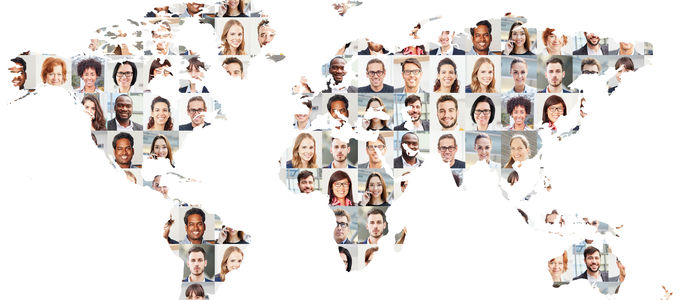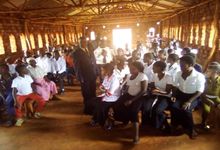Giving a voice to the voiceless
What refugees urgently need, besides food and water, medical care, and a roof over their heads, is hope! And prospects of a homeland, friends, and a sense of security. Unfortunately, reality presents to a completely different picture many of them is. Here is a call for reflection.

World Refugee Day has been around for more than a hundred years. Not much has changed since then. Whether people the world over remember refugees, displaced persons, asylum seekers, or migrants does not make a big difference: this phrase is an incentive to downplay human fate, to banish them from our mind. The world does not need this, and migrants certainly do not deserve this! In fact, it is part of the truth that not everything is in order in our beautiful world. Reflecting on what is right and wrong must not be lost.
71 million people are looking for a new homeland
Since 2001, the United Nations has been observing World Refugee Day every year. It raises awareness of the plight of millions of refugees who set off each year and leave widening paths that look like scars across the globe. Beaten tracks, refugee routes. Millions of people have been displaced and left without a home. Where are they going? They often don’t know that themselves. A migrant between two countries lacks the leisure to reflect.
Protests and public ceremonies at least remind us of the problem, even if they do not solve them. Anyone who has never been part of a refugee trek has little idea of all that happens along the way. These people have just turned their backs on violence, persecution, and human rights violations only to walk into hopelessness, hunger, and cold! It is a vicious cycle of evil that has been set in motion. People with a permanent home and a roof over the heads can barely imagine this. There are millions of fates and stories that tell of violence, human abysses, but some also of hope and courage.
A record number
To make matters worse, COVID-19 with its global restrictions is hitting the poorest of the poor the hardest. Funds which would otherwise be available are withdrawn—aid and care is channeled differently. And refugee stories give way to other news. Many people in many countries are affected. The list is long: Yemen, Venezuela, Burundi, Iraq, Syria, South Sudan, Nigeria, and many more. There are ethnic conflicts in Myanmar, in the Central African Republic, or in South Sudan. Terror is rampant in Syria and Afghanistan. Migrants are underway in North and South America. And on their way to Europe many refugees are drowning in the Mediterranean. No continent in the world is without refugees. The figures continue high. The UNHCR, the UN Refugee Agency, estimates that there are more than 79 million forcibly displaced people worldwide—the highest number since World War Two.
Prayer and love for the neighbour
Christians should not accept this. News of this kind should worry us. Christians can at least follow one of the most important principles of faith: prayer. Their prayers are free of barriers and limitations, free of prejudices and classification, Chief Apostle Jean-Luc Schneider, the international leader of the New Apostolic Church, says. “Refugee treks and xenophobia overlap far too easily,” he says. His appeal is that we do not allow hatred any room. Instead, love of the neighbour should be the order of the day. We need signs of solidarity and emotional attachment as well as good and creative ideas in the congregations.
The common goal can be to give a voice to those who no longer have one or who have never had one. And there are many of them, too many!
Photo: Robert Kneschke - stock.adobe.com
Article info
Author:
Date:
Keywords:
Peter Johanning
20.06.2020
Aid agencies,
Social commitment,
International





